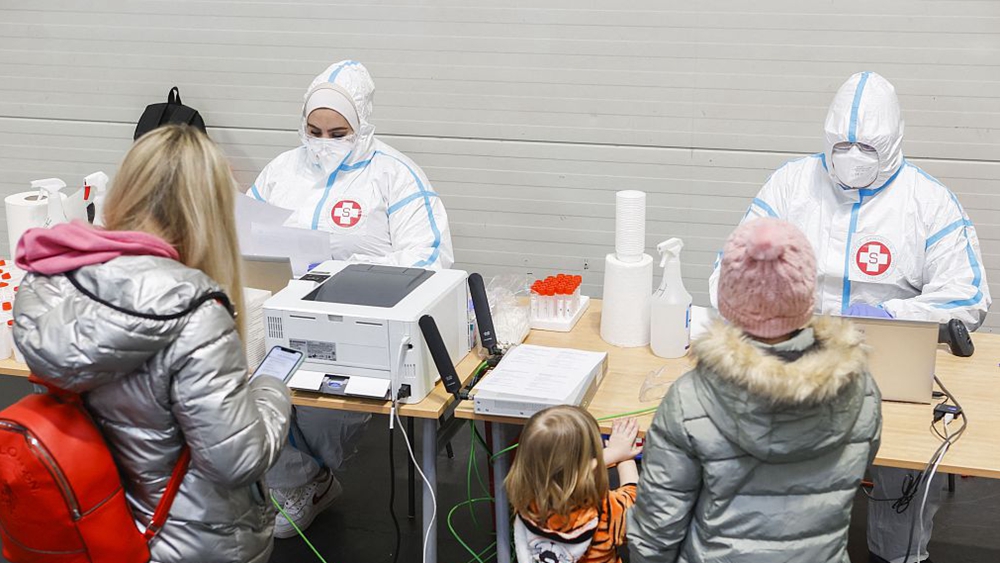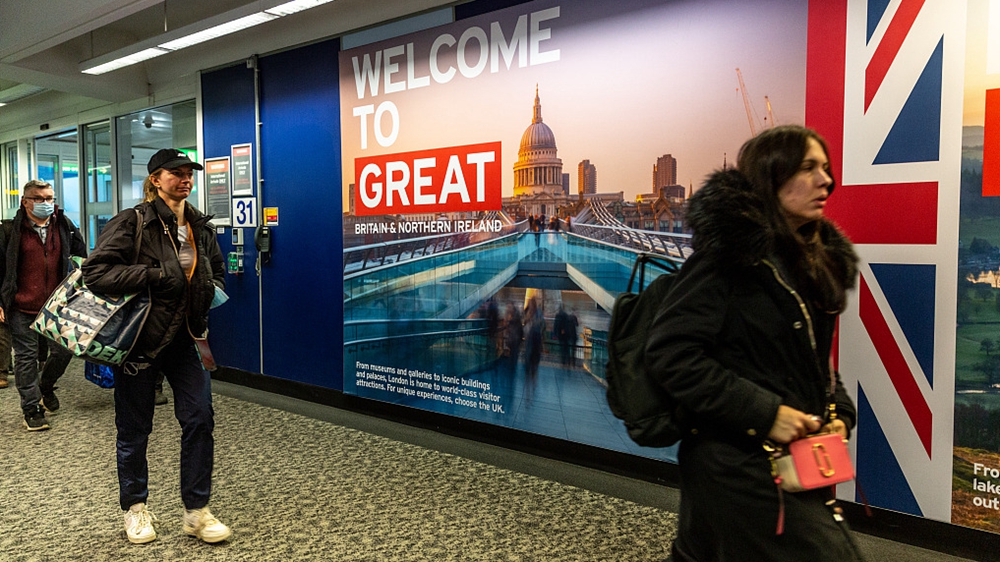
Shoppers in central Gothenburg, Sweden, February 9, 2022. /CFP
Shoppers in central Gothenburg, Sweden, February 9, 2022. /CFP
Some European countries have seen a rising number of COVID-19 infections again after further relaxations of pandemic restrictions. More experts warned of severe consequences if giving up all restrictions too early, especially with the spread of a more transmissible sub variant - Omicron.
Further relaxation
On Tuesday, Dutch Health Minister Ernst Kuiper announced that the government would further scale down COVID-19 rules from next Wednesday. The mask obligation in public transport will go. The advice to work from home will be canceled. A negative test will no longer be required at events with more than 500 participants.
In Britain, from 4 a.m. local time the coming Friday, all COVID-19 travel restrictions will be lifted, including the passenger locator form for arrivals into the country, as well as all tests for passengers who do not qualify as vaccinated.
France also lifted restrictions on the mandatory vaccine pass and masks in indoor areas on March 14.
On March 9, the Austrian government suspended its sweeping compulsory vaccination mandate, which has been in effect since early February. The Alpine country lifted most of its COVID-19 restrictions from March 5, scrapping entry requirements such as vaccination, recovery from the virus, or a negative test result, for most places.
The Spanish Ministry of Health has informed that it will now update the number of new COVID-19 cases and deaths twice a week instead of every weekday.
Germany will see the removal of most COVID-19 protection measures from March 20. People will only be required to wear masks in hospitals, care facilities, and public transport.

Ukrainian refugees are tested for the coronavirus at a reception center in Vienna, Austria, March 4, 2022. /CFP
Ukrainian refugees are tested for the coronavirus at a reception center in Vienna, Austria, March 4, 2022. /CFP
Rising infection
The coronavirus infections are rising in all four UK regions for the first time since the end of January, with Scotland already reporting record-high infections, according to the latest estimates from the Office for National Statistics.
Official figures on Tuesday showed Britain added 492,103 COVID-19 cases and 714 deaths over the last seven days.
In early March, infection numbers surged in Austria since the further easing of COVID-19 restrictions. On March 10, the country reported 49,432 COVID-19 infections in the previous 24 hours, a new daily record since the pandemic's outbreak.
Austrian media reported that the high infection numbers had caused severe teacher shortages in schools.
In the Netherlands, over the past week, the number of people admitted to the hospital rose sharply, by 14 percent, and the number of patients in the ICU also increased by six percent.
The number of infections remained high in the country. The National Institute for Public Health and the Environment (RIVM) reported on Tuesday that in the past seven days, 429,252 new positive tests came in.

Travelers arrive at London's Stansted Airport as coronavirus restrictions ease for fully vaccinated travelers in London, England, March 14, 2022. /CFP
Travelers arrive at London's Stansted Airport as coronavirus restrictions ease for fully vaccinated travelers in London, England, March 14, 2022. /CFP
Too early?
Krunoslav Capak, director of the Croatian Institute of Public Health, said that the new BA.2 variant, a subvariant of the Omicron virus, was spreading faster in Western European countries.
With the arrival of warmer weather and the fall of new cases, people relaxed, thinking that the pandemic was over, he added.
"That is not correct. The virus is still here, and the numbers are still high. We need to be careful and think that the virus is still among us and can be dangerous again," Capak said. Therefore, "everyone still needs to adhere to epidemiological measures."
Ahmad Hamwi, an Austrian physician, said he shares the same view with many experts that lifting COVID-19 restrictions in Austria is too early. He advised mandatory mask-wearing indoors and efforts to further boost the vaccination rate.
According to Dutch experts, it is not yet clear whether the peak has already been reached. They cautioned that a further relaxation of the rules might cause a continued increase of positive cases, and the health system will come under intensified pressure as a result.
"Experts are skeptical about when the pandemic will end. Historically, each pandemic has a different outcome, and it is noted that many more chapters remain to be written in the book of the COVID-19 pandemic," said Maria Theodoridou, president of the National Vaccination Committee of Greece, on Monday.
(Cover: A nurse pushes a patient with convulsions to the computer tomography at the main city hospital during the coronavirus pandemic in Innsbruck, Austria, January 1, 2022. /CFP )
Source(s): Xinhua News Agency

